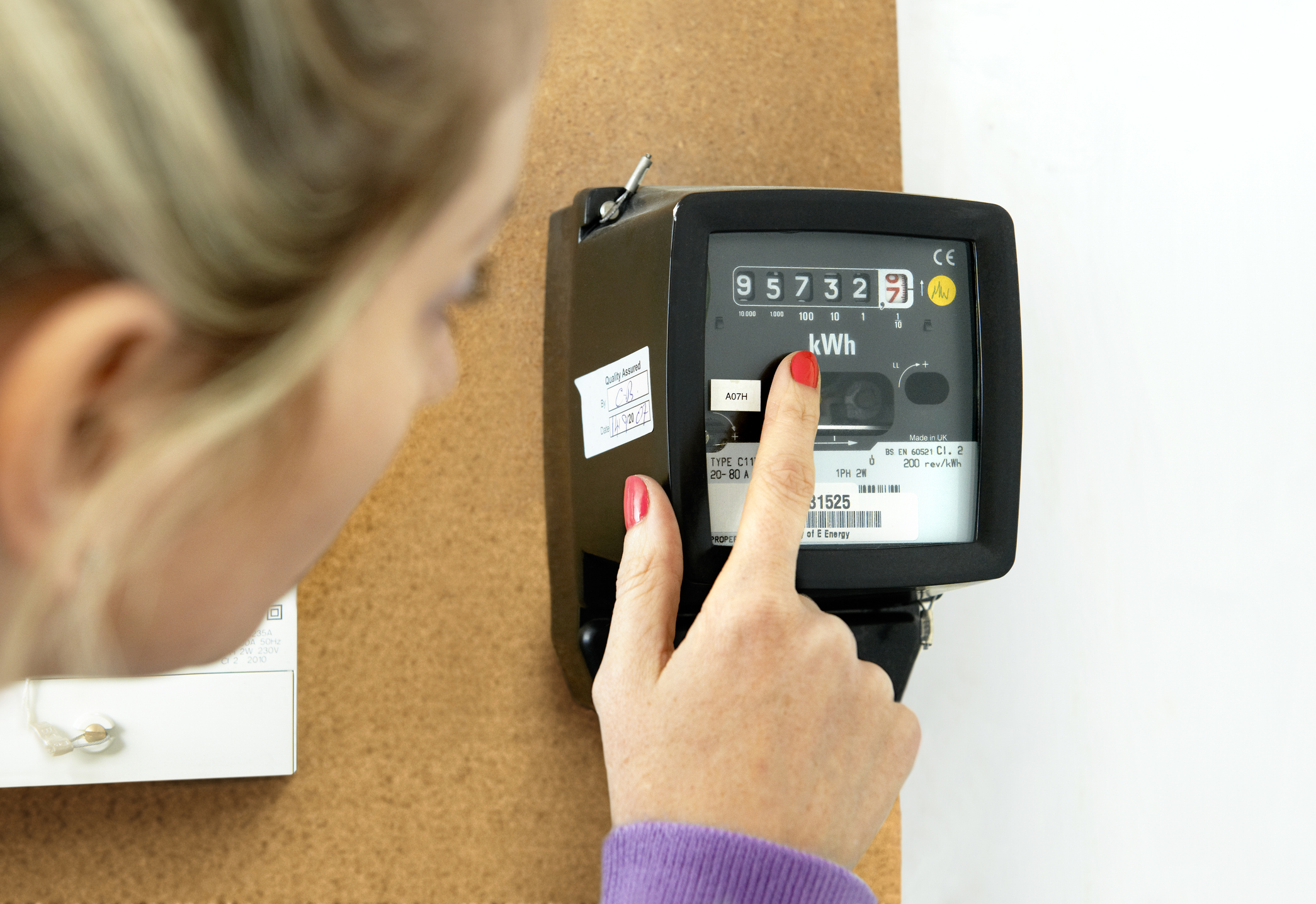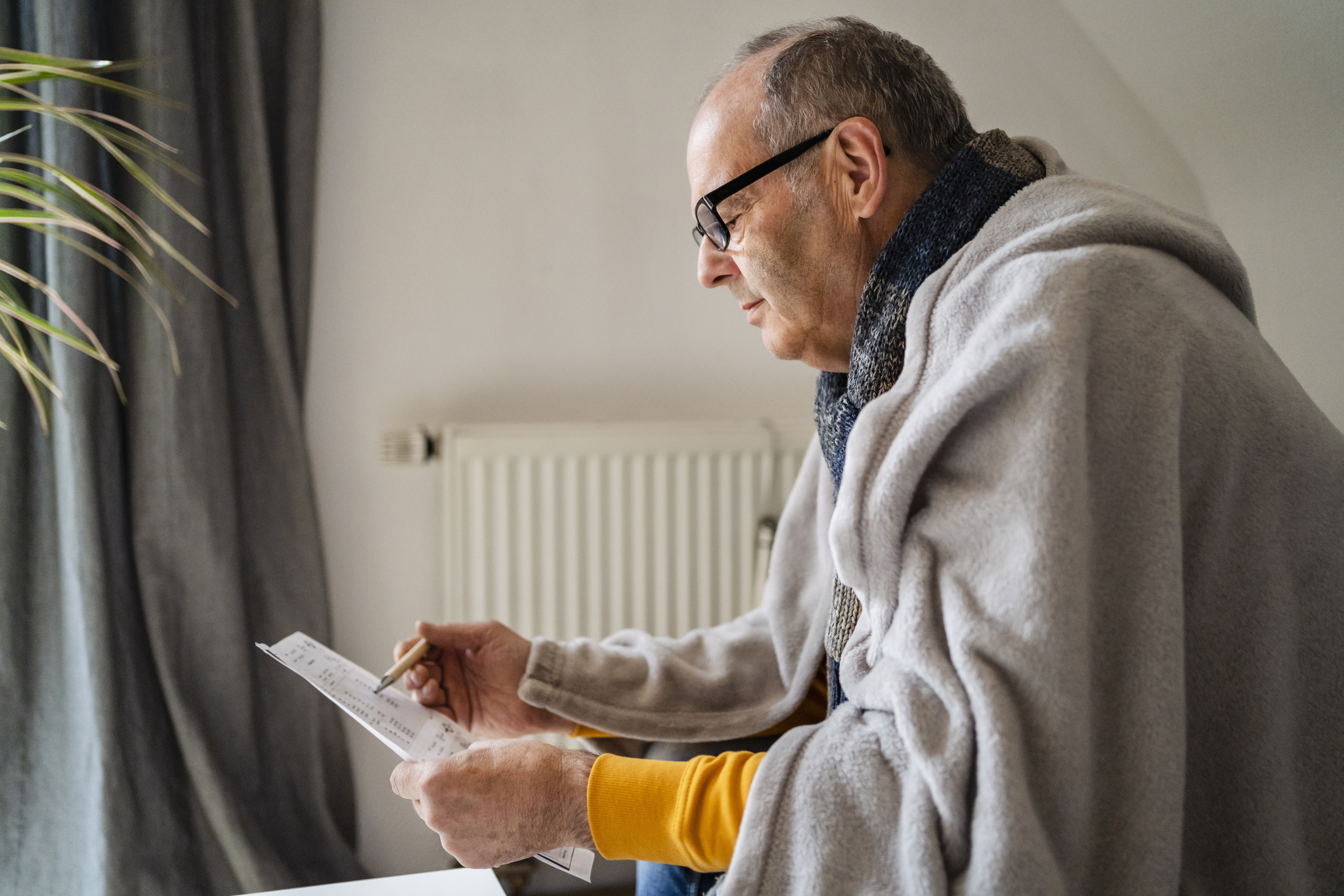How to take an energy meter reading as Ofgem energy price cap rises
Meter reading day falls every three months when the new energy price cap kicks in. Here's why you may want to take a reading on 1 January ahead of the price cap rise


Get the latest financial news, insights and expert analysis from our award-winning MoneyWeek team, to help you understand what really matters when it comes to your finances.
You are now subscribed
Your newsletter sign-up was successful
Want to add more newsletters?

Twice daily
MoneyWeek
Get the latest financial news, insights and expert analysis from our award-winning MoneyWeek team, to help you understand what really matters when it comes to your finances.

Four times a week
Look After My Bills
Sign up to our free money-saving newsletter, filled with the latest news and expert advice to help you find the best tips and deals for managing your bills. Start saving today!
The first day of January, April, July, and October marks energy meter reading day, as these are the days that the new Ofgem energy price cap comes into effect.
Submitting an energy meter reading is probably not on the top of your New Year’s Day priority list – but there could be a good reason to send one to your energy supplier.
Energy meter reading day falls on the first day of January, April, July, and October, as these are the days that the new Ofgem energy price cap, which is updated quarterly, comes into effect.
MoneyWeek
Subscribe to MoneyWeek today and get your first six magazine issues absolutely FREE

Sign up to Money Morning
Don't miss the latest investment and personal finances news, market analysis, plus money-saving tips with our free twice-daily newsletter
Don't miss the latest investment and personal finances news, market analysis, plus money-saving tips with our free twice-daily newsletter
In particular, if you are on a standard variable tariff and do not have a smart meter, you might want to manually send an energy meter reading as failing to do so could mean you are billed incorrectly.
From 1 January 2026, the energy price cap will increase by 0.2%, bringing the average annual household energy bill to £1,758 for those who pay for gas and electricity by direct debit – a rise of around £3.36 a year, or 28p a month.
This price cap will stay in place until 31 March, after which the price cap will be adjusted.
The cap is based on unit prices, not your total bill, so how much you pay will depend on how much you use.
If you have a smart meter, then it sends automatic readings to your energy supplier and you do not need to do anything to make sure you are being billed correctly.
What is energy meter reading day?
Energy meter reading day is an initiative that aims to get people to submit meter readings either on or slightly before the Ofgem energy price cap changes.
People are encouraged to send readings on these dates to ensure that their energy bills are accurate.
Suppliers work out your bill in one of two ways. They either take your smart meter readings, or your submitted readings, and base what you pay directly on your usage. Or, if you don't have a smart meter and don't submit readings, they will estimate how much you should pay.
The latter option means that you are likely not paying the right amount of money for your energy usage. Even if the estimated figure is lower than your energy consumption, you will still be liable to pay the difference at a later date.
By submitting a meter reading either close to or on the new price cap date, your energy company won't be able to charge you at the higher rate for any units that you used on the lower rate. So, by taking a meter reading you’re ensuring you’re not overcharged.
You don’t have to manually submit monthly readings if your smart meter is working properly in smart mode. However, it is a good idea to note meter readings down manually anyway just in case there are any technical issues with your smart meter.
You don’t have to send a meter reading if you have a prepayment meter.
How do I take an energy meter reading?
Generally, to take a reading, you will need to send in five numbers to your supplier. On a single-rate meter (the most common kind), these are generally the first ones you come across when reading the number from left to right.
Most meters helpfully have a red zone, which includes numbers you do not have to record. But they can look a bit different. For example, a dial meter may point to several numbers on different faces. These still need to be read from left to right.
The process is a bit simpler with a functional smart meter, as the digital display should give you the relevant numbers fairly easily.
Once you have your reading, head to your supplier's website or app. They will usually have a section where you can give them your meter reading.
You can also phone them to submit a reading – but be aware that there could be many other people doing the same thing on meter reading day, so wait times may be longer than usual.
After January, the following energy meter reading day will fall on or slightly before 1 April 2026, as this is when the price cap for the second quarter of the year will kick in.
Prices are expected to fall at this point after the government announced it will axe some green levies, cutting household energy bills by around £150 a year.
However, this cut will coincide with a slew of other policy charges that increase household bills, so the true saving is unlikely to be the full £150. Note that this is just a forecast and could change.
HOW TO CUT YOUR ENERGY BILLS
At present, the best way to cut your bills is to lower your consumption. Gareth Kloet, energy spokesperson for Go.Compare Energy, says: "Trying to reduce your energy consumption will help minimise costs in the short and longer term, and will ultimately pay dividends.
“There are things you can do around the home to save energy, including making sure you’re not leaving devices in standby mode, buying energy-efficient appliances, swapping baths for showers and trying not to turn the thermostat right up as soon as the temperature drops outside."
He adds: “If you are struggling to make payments and are concerned about energy bills, always talk to your energy provider in the first instance, as they have a duty to help. Do not be tempted to skip payments or just not pay – get in touch with them and they will discuss a payment plan with you.”
To help you keep energy bills low, check out our top tips on 13 ways to reduce your energy costs. If you're interested in the best ways to improve your energy efficiency and reduce costs, we explore radiators vs electric heaters, heated airers vs tumble dryers, and wood burning stove vs central heating.
Get the latest financial news, insights and expert analysis from our award-winning MoneyWeek team, to help you understand what really matters when it comes to your finances.

Daniel is a financial journalist at MoneyWeek, writing about personal finance, economics, property, politics, and investing.
He covers savings, political news and enjoys translating economic data into simple English, and explaining what it means for your wallet.
Daniel joined MoneyWeek in January 2025. He previously worked at The Economist in their Audience team and read history at Emmanuel College, Cambridge, specialising in the history of political thought.
In his free time, he likes reading, walking around Hampstead Heath, and cooking overambitious meals.
-
 Should you buy an active ETF?
Should you buy an active ETF?ETFs are often mischaracterised as passive products, but they can be a convenient way to add active management to your portfolio
-
 Power up your pension before 5 April – easy ways to save before the tax year end
Power up your pension before 5 April – easy ways to save before the tax year endWith the end of the tax year looming, pension savers currently have a window to review and maximise what’s going into their retirement funds – we look at how
-
 Winter Fuel Payment cut to hit ‘1.5 million’ pensioners - what support does your energy supplier offer?
Winter Fuel Payment cut to hit ‘1.5 million’ pensioners - what support does your energy supplier offer?Advice The Winter Fuel Payment is being scrapped for most pensioners this year. But you may be able to access extra support from your energy supplier. Here’s what’s on offer.
-
 Act now to bag NatWest-owned Ulster Bank's 5.2% easy access savings account
Act now to bag NatWest-owned Ulster Bank's 5.2% easy access savings accountUlster Bank is offering savers the chance to earn 5.2% on their cash savings, but you need to act fast as easy access rates are falling. We have all the details
-
 Moneybox raises market-leading cash ISA to 5%
Moneybox raises market-leading cash ISA to 5%Savings and investing app MoneyBox has boosted the rate on its cash ISA again, hiking it from 4.75% to 5% making it one of top rates. We have all the details.
-
 October NS&I Premium Bonds winners - check now to see what you won
October NS&I Premium Bonds winners - check now to see what you wonNS&I Premium Bonds holders can check now to see if they have won a prize this month. We explain how to check your premium bonds
-
 The best packaged bank accounts
The best packaged bank accountsAdvice Packaged bank accounts can offer great value with useful additional perks – but get it wrong and you could be out of pocket
-
 Bank of Baroda closes doors to UK retail banking
Bank of Baroda closes doors to UK retail bankingAfter almost 70 years of operating in the UK, one of India’s largest bank is shutting up shop in the UK retail banking market. We explain everything you need to know if you have savings or a current account with Bank of Baroda
-
 How to earn cashback on spending
How to earn cashback on spendingFrom credit cards and current accounts to cashback websites, there are plenty of ways to earn cashback on the money you spend
-
 John Lewis mulls buy now, pay later scheme
John Lewis mulls buy now, pay later schemeThe CEO of John Lewis has said the retailer will consider introducing buy now, pay later initiatives for lower-priced items.